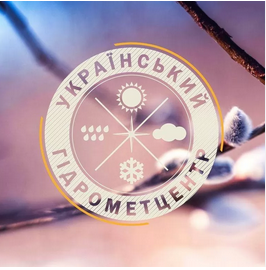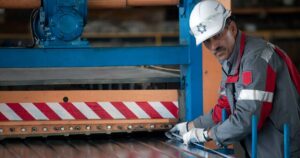
The Government Office for Coordination of European and Euro-Atlantic Integration, the Ministry of Digital Transformation of Ukraine, language technology company Tilde, and the Latvian National Center for Artificial Intelligence have signed a memorandum of cooperation.
“The document establishes a framework for cooperation in the development of language models, exchange of experience, and implementation of AI tools to support Ukraine’s institutional capacity on the path to EU membership,” according to a statement from the Office of the Deputy Prime Minister for European and Euro-Atlantic Integration.
As Deputy Prime Minister for European and Euro-Atlantic Integration of Ukraine Taras Kachka said during the signing, Ukraine is currently in the active phase of negotiations on accession to the European Union, and the next 24 months will be decisive.
“And right now, it is important to join forces to implement not only legislation but also tools that strengthen the institutional capacity of the state,” he added.
In his opinion, such tools include artificial intelligence technology, in particular for the translation and analysis of EU legal acts, as well as the importance of preserving the culture of the Ukrainian language and its authentic models in public documentation related to European integration.
“The language technology company Tilde was chosen as the most suitable solution for Ukrainian needs, as this platform takes into account the peculiarities of the Ukrainian language, its phraseology, morphology, and stylistics, which ensures the authenticity of translations. This solution will also allow for further scaling of the technology to involve other ministries, state bodies, and enterprises. The cooperation provides for the exchange of experience between experts from the parties to the memorandum, the joint development of language models, and support for new digital services,” the statement said.

On Sunday, Ukrainian President Volodymyr Zelensky announced the appointment of Oksana Markarova as presidential advisor on Ukraine’s recovery and investment.
“Starting today, Oksana Markarova will continue to assist our state as my advisor on Ukraine’s recovery and investment. We will definitely protect our independence and Ukraine’s right to be a sovereign European state. We have been ensuring Ukraine’s ability to defend itself and, on a daily basis, to resist full-scale Russian aggression for almost four years. Despite all the difficulties, we are providing Ukraine with the necessary weapons, air defense systems, and sufficient resources for internal stability,” he wrote on Telegram.
Zelensky noted that Markarova’s appointment will contribute to the realization of the long-term goal of the country’s recovery and economic development.
“In addition to the fundamental goal of protecting Ukraine’s independence and working daily for its survival, we have a long-term goal: to ensure that Ukraine can rebuild after the hostilities and resume normal economic development. This is a task for the
Ukrainian government, all our institutions, and Ukrainian business, and I believe that everyone who can help Ukraine in this should do so,” he said.
The relevant decree of the President of Ukraine No. 872/2025 on the appointment of Markarova as advisor to the President of Ukraine on the restoration of Ukraine and investments was published on the website of the Office of the President of Ukraine.
The website states that Oksana Markarova recently completed her term as Ambassador Extraordinary and Plenipotentiary of Ukraine to the United States (2021-2025) and representative of Ukraine to the Organization of American States.
“She has significant experience in public finance and private capital management, as well as in attracting investment. While working in senior positions at the Ministry of Finance of Ukraine, Oksana Markarova created the government agency UkraineInvest and the Startup Support Fund,” the statement added.
It is noted that the advisor will advise the president on issues related to improving the business climate, strengthening the financial stability of the state, attracting investment, and planning recovery together with Ukraine’s strategic partners.

The Ukrainian Hydrometeorological Center warns of deteriorating weather conditions in Zhytomyr and western regions of Ukraine on Monday, December 1.
“On December 1, fog is expected in the western and Zhytomyr regions, with visibility of 200-500 m (level I hazard, yellow),” the report states.
It is noted that weather conditions may lead to traffic complications.

Shareholders of PJSC National Joint Stock Insurance Company Oranta (Kyiv) plan to allocate part of the undistributed profit for 2024 in the amount of UAH 20.333 million to pay dividends.
According to the draft decisions of the company’s shareholders’ meeting scheduled for December 5, 2025, which are posted on the NSSMC’s information disclosure system, it is also planned to approve the amount of dividends per one ordinary registered share in the amount of UAH 0.10 and to determine that the payment of dividends will be carried out through the depository system of Ukraine in the manner established by the supervisory board of NASK Oranta.
As reported, in 2024, NASK Oranta increased its premium income by 54% to UAH 2.35 billion compared to the same period in 2023, while the volume of payments increased by 22% to UAH 155.2 million.
Over the past year, the company paid out UAH 657 million in compensation, which is 25% more than in 2023. The increase in payments is due to the growth of the portfolio and the number of settled insurance events. Thus, UAH 487 million (+34%) was paid out under MTPL policies, and UAH 99 million under Green Card agreements. The volume of premiums from legal entities increased by 26% last year.
The insurer’s profit amounted to UAH 157 million, and insurance reserves grew by 44% to UAH 1.35 billion, ensuring the insurer’s financial reliability.
NASK Oranta is the successor to Ukrderzhstrakh, founded on November 25, 1921, and has been operating in Ukraine for over 100 years.
The insurer’s main shareholder is the Ukrainian business group DCH.

In January-September this year, Metinvest-Resource LLC increased its net profit to UAH 44.721 million from UAH 3.475 million in the same period last year.
According to the company’s interim report, which is available to Interfax-Ukraine, its profit in the third quarter of 2025 amounted to UAH 21.647 million.
Revenue for this period increased by 27.8% to UAH 3 billion 919.585 million.
The uncovered loss at the end of September amounted to UAH 57.4 million.
In 2024, the LLC received a net profit of UAH 6.085 million, while it ended 2023 with a loss of UAH 43.270 million, and in 2022, the net loss was UAH 129.227 million.
Metinvest-Resource LLC is the exclusive supplier of ferrous metal scrap to the Ukrainian metallurgical enterprises of the Metinvest Group. Metinvest-Resource LLC’s capabilities enable it to continuously supply more than 1.5 million tons of raw materials per year to meet the needs of the group’s metallurgical assets. The company has a history spanning more than 20 years, dating back to the founding of PFK Prometey LLC, which was renamed Metinvest-Resource LLC in February 2011.
The company has many years of experience in the domestic and foreign scrap metal markets in terms of purchasing scrap metal and its substitutes (GBZ), and delivers them by all modes of transport. Metinvest-Resource LLC actively participates in joint projects to dismantle various metal facilities in the country. It has established business relationships with more than 100 scrap metal procurement companies in Ukraine and around the world.
The company’s authorized capital is UAH 6.437 million.
Metinvest is a vertically integrated group of mining and metallurgical enterprises. Its enterprises are located in Ukraine – in the Donetsk, Luhansk, Zaporizhzhia, and Dnipropetrovsk regions – as well as in European countries. The main shareholders of the holding company are SCM Group (71.24%) and Smart Holding (23.76%). Metinvest Holding LLC is the management company of the Metinvest Group.

In January-September 2025, the manufacturer of agricultural equipment and special-purpose machinery, JSC “Fregat Plant” (Pervomaisk, Mykolaiv region), increased its losses by 21% compared to the same period in 2024, to UAH 50.3 million.
According to the company’s financial report published in the information disclosure system of the National Securities and Stock Market Commission, net sales revenue decreased 3.8 times to UAH 35.2 million.
The company received UAH 10.5 million in gross profit (a year ago – UAH 50.7 million), and the loss from operating activities amounted to UAH 33.3 million, compared to a profit of UAH 16.3 million in January-September 2024.
“During the reporting period, the company focused its efforts on maintaining its customer base, supporting long-term partnerships with counterparties, and ensuring the economical and rational use of funds,” the report says.
The Fregat plant notes that the degree of utilization of fixed assets in the reporting period was 20%.
According to the plant, in the third quarter, the production of agricultural machinery for crop production accounted for 5.5% of the total volume of commercial products, and equipment for the processing industries of the agro-industrial complex accounted for 1.6%, while other types of products accounted for 92.9%.
The average salary in the third quarter of 2025 was 12.5% lower than in the same period of 2024, at UAH 10,900.
The Fregat plant specializes in the production of irrigation systems, road barriers, metal structures, as well as machine-building products and special-purpose machines.
As of October 1, 2025, it had an average of 126 employees, with 85 at the Eastern branch and 10 at the Dnipro branch (both in Pervomaisk).
As reported, in 2024, the plant increased its losses by 58% compared to 2023, to UAH 60.4 million, while its net income increased by 34.6%, to UAH 188.6 million.